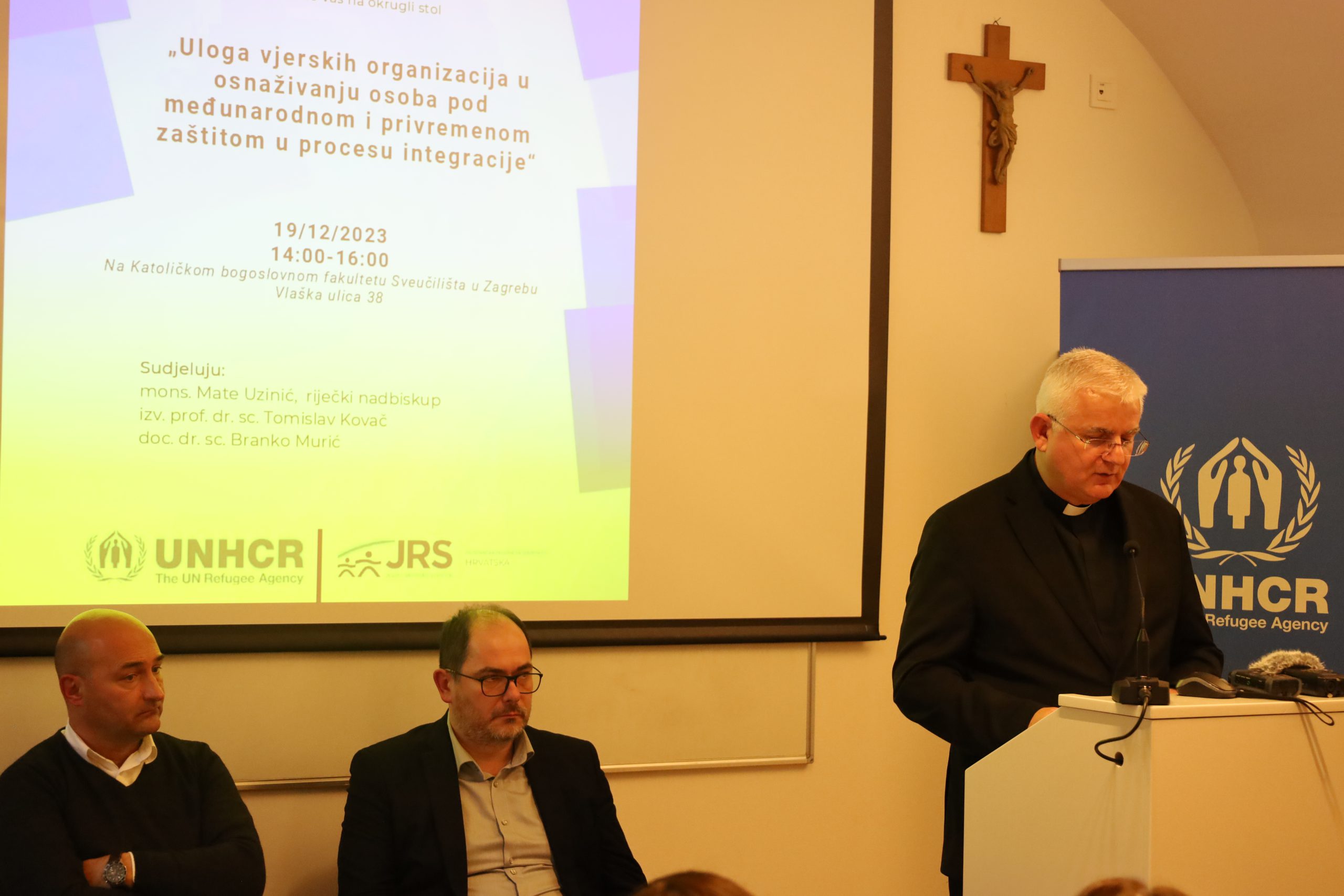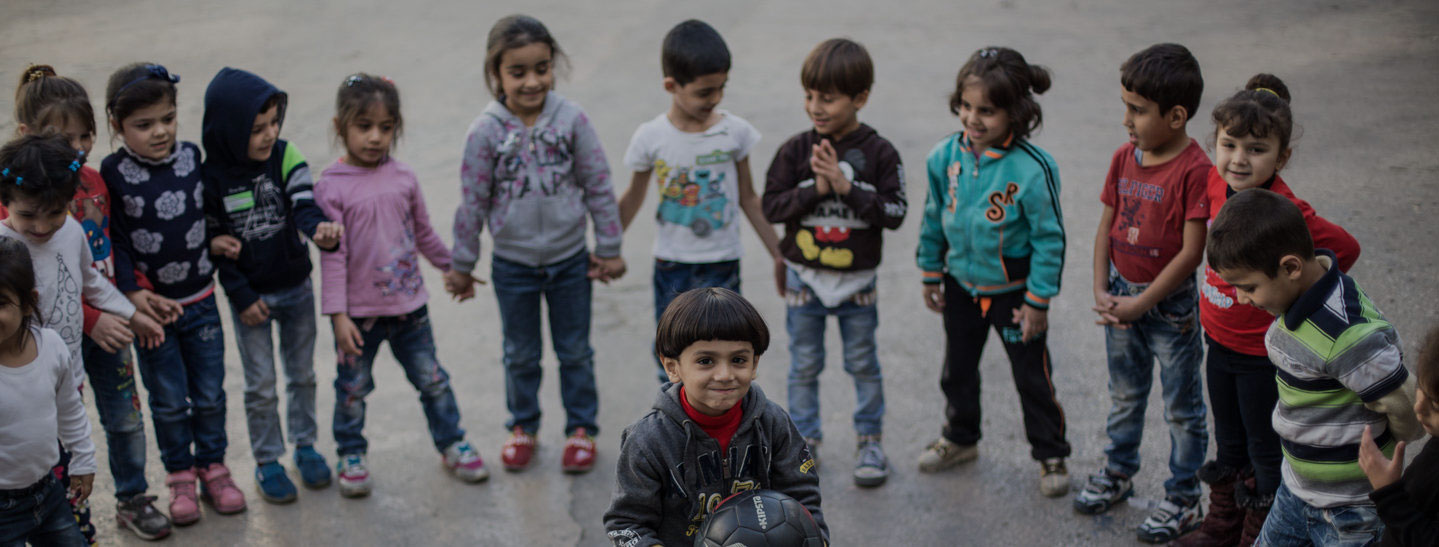Reflection on the role of faith-based organizations
15 July 2025
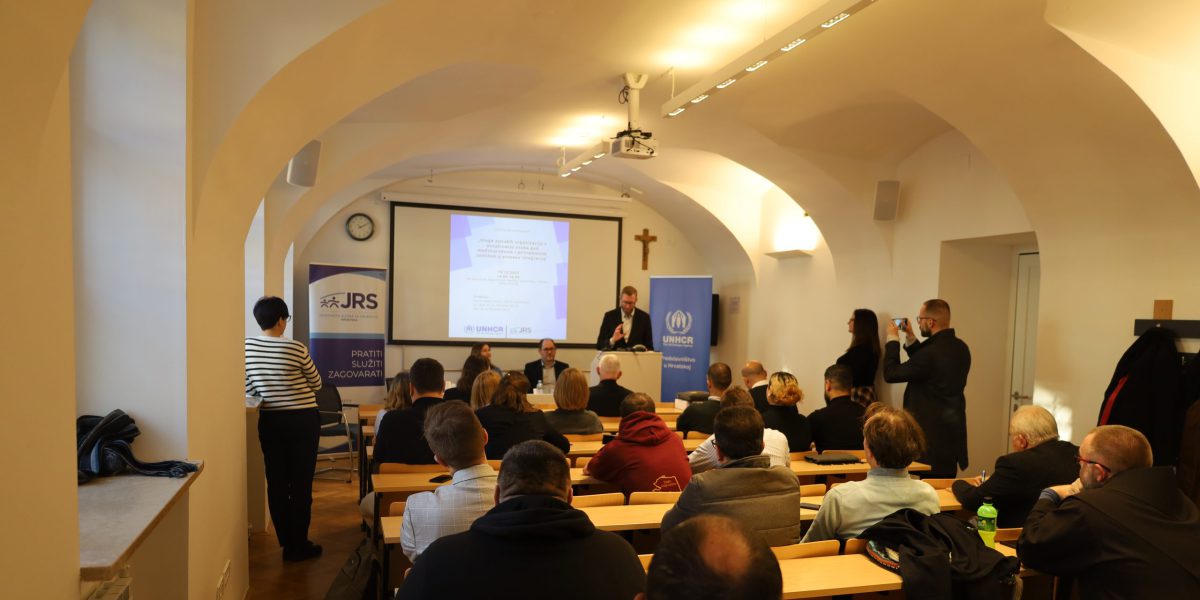
At the Catholic Theological Faculty of the University of Zagreb on December 19, 2023, we hosted a roundtable titled “Reflection on the role of faith-based organizations in Empowering Persons under International and Temporary Protection in the Integration Process”.
We organized it within the framework of the “Empowerment for Employment” project conducted in collaboration with UNHCR. Our office manager, Ana Marčinko, presented the project’s outcomes, which engaged approximately 200 refugees in Croatian language learning activities (levels A1-B1), provided psychosocial support, education on workers’ rights, workplace culture, and retraining in professions sought after in the Croatian job market.
Regional director Stanko Perica addressed the attendees, emphasizing the importance of collaboration between the Church and civil society organizations in their relations with the most vulnerable groups in our society. While acknowledging that the Church and the secular organizations often operate separately, Father Stanko highlighted that JRS and UNHCR transcend this dichotomy and nurture synergy in implementing joint projects.
UNHCR’s representative in Croatia, Anna Rich, added, “Partnerships based on shared values of humanity, solidarity, and respect for human dignity are crucial in providing solutions for refugees. Our joint project with the Jesuit Refugee Service aims precisely to empower individuals to become self-reliant, enabling them to care for themselves, their families, and the community as a whole.”
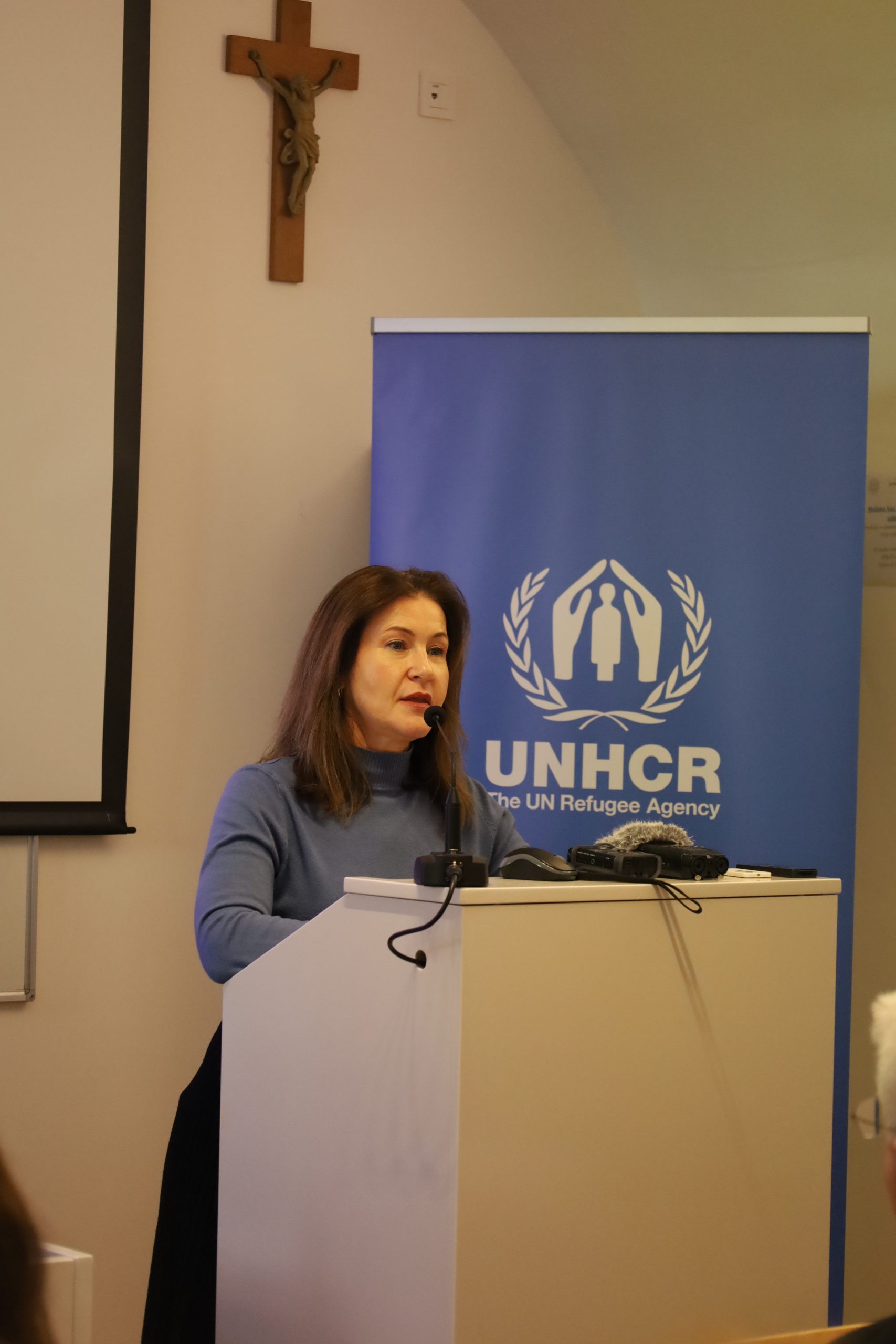
Beneficiaries’ experiences: Reflection on the ‘Empowerment for Employment’ project through their stories
Four beneficiaries of the project, who came to Croatia from Ukraine and Iraq, testified about the kind of empowerment and assistance they had received. Their stories stand as one of the indicators of the effectiveness of implementing such projects.
Viktoriia from Kharkiv, addressed the attendees, saying, “I grew up with a sense of gratitude for what I have. And now, we have an abundance. I want to thank JRS for every activity they conduct, not only for us but also for our children. I also want to express gratitude to the organizers of the project for the opportunity to acquire practical job-seeking skills, such as resume writing, job interview preparation, and teamwork. This project played a crucial role for me – it provided me with motivation and hope. I feel as if I’ve been reborn, felt the ground beneath my feet, and moved forward. Today, I received an offer to represent a new Ukrainian company, Handmade Food franchise, in Zagreb. I’m currently in the process of administrative preparations and searching for suitable premises. The next steps will be the most exciting in my life.”
We’re proud on the individuals transitioning from being beneficiaries to assuming leadership or collaborative roles. Good example is Lilliia Ostryzhna, who, as a JRS collaborator, conducts training sessions for adults seeking or looking to change jobs. She also provides psychological assistance to teenagers and their parents.
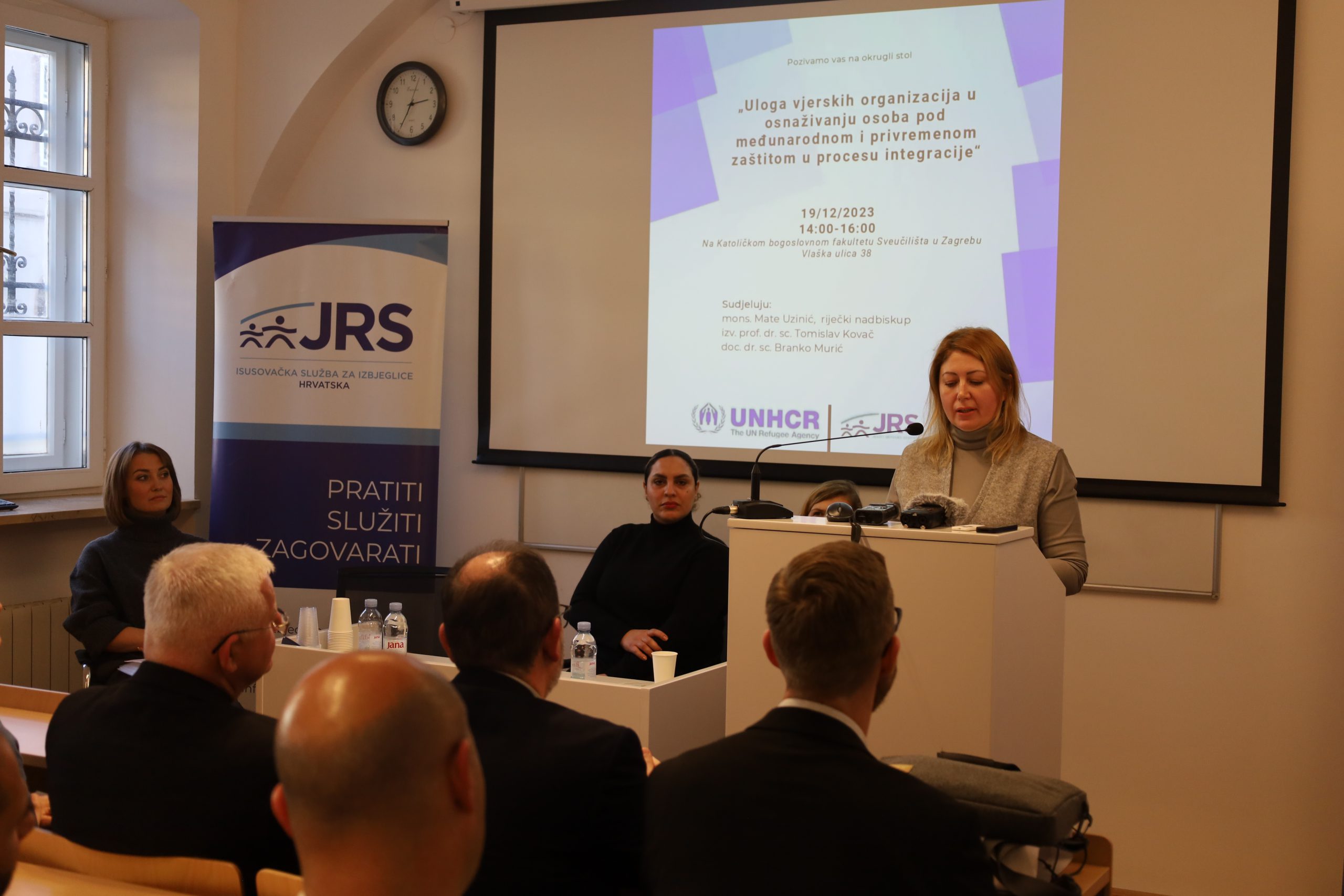
Perspectives on integration and intercultural dialogue: Panelists’ experiences on migrations and the contribution of faith-based organizations
The roundtable continued with insightful presentations from our esteemed panelists: Msgr. Mate Uzinić, Archbishop of Rijeka; Assoc. Prof. Branko Murić, Vice-Dean for Science at the Catholic Theological Faculty; and Assoc. Prof. Tomislav Kovač, Head of the Department of Fundamental Theology at the Catholic Theological Faculty.
Professor Kovač approached the topic of migration using France as an example, a country where he lived for 18 years and continues to be strongly connected with his experiences. He emphasized that in France, a symbol of Christianity, Western civilization, and enlightenment, the issue of migration has become crucial in politics. Today, France counts 68 million inhabitants, with 7 million foreigners (10.3%), among whom 6 million are Muslims (8.5%). It is estimated to have around 900,000 illegal migrants, with an annual influx of between 80,000 and 100,000 new illegal migrants.
Professor Kovač provided insights into the history of immigration to France through various phases and forms over the last 150 years. He emphasized that the lack of systematic integration results in negative consequences such as increased poverty, delinquency, crime, the creation of ghettos, and self-isolation, leading to the erosion of French values and identity.
Underlining the importance of awareness of one’s own identity and the hospitable culture of the host, he advocated for a model of intercultural approach that respects and creatively integrates the cultures and identities of both hosts and newcomers, fostering a culture of dialogue and solidarity. This approach is supported by the Catholic Church and is also advocated by Pope Francis.
Archbishop of Rijeka, Msgr. Uzinić, highlighted at the beginning of his address the importance of the Church in listening and actively participating in the community, adapting to contemporary needs. He emphasized that migrations are an evident sign of the times, recognized by both Pope Benedict and Pope Francis. As signs of the times are a way in which God speaks in our world, Christians have a duty to be informed, engaged, and proactive.
Msgr. Uzinić presented in detail the engagement of the Rijeka Archdiocese, emphasizing numerous activities related to refugees from Ukraine and migrants passing through Croatia, particularly through the transit point in Rijeka. Rijeka’s Caritas played a key role, and the Church collaborated with other religious and civil organizations, including JRS.
He emphasized the importance of humanitarian corridors as the most optimal contribution of religious organizations in the current migrant situation. He explained that these are safe and lawful pathways for refugees. He recalled Pope Francis’ call for the opening of these corridors and mentioned the initiative of the Rijeka Archdiocese and JRS, which has not yet received support from the Ministry of the Interior. He asked representatives of UNHCR in Croatia to support such engagements in our country.
Msgr. Uzinić concluded: “Our conscience dictates that we do not turn away from the current situation and publicly acknowledge that our country is not doing enough in this regard. If it does anything at all. It is not unknown that the Republic of Croatia grants an exceptionally small number of international protections and does not participate in complementary pathways programs. I hope that we in the Catholic Church are ready to contribute. There can be no other way if we wish to remain faithful to Christ. This requires legal prerequisites, and those who bear political and legislative responsibility should make them. It seems to me that only a little willingness and cooperation are needed because as a community, we can do much more.”
The final presentation was delivered by professor Murić, also highlighting migrations as a sign of the times that demands active participation of lay faithful in social life. He referred to early Christian writings, particularly the Letter to Diognetus, which described Christians as strangers and foreigners in their own land, as travelers in this world but with a “striking” Christian uniqueness of life.
This uniqueness arises from the awareness of a new mission that involves doing what the Lord did and understanding the meaning when He says, ‘Truly I tell you, whatever you did for one of the least of these brothers and sisters of mine, you did for me.’ Migrations are a novelty in social life, so Christians are called to be open to the ‘novelty’ of lifestyle in this world. The Christian mission and responsibility lie in acceptance, humanity, and solidarity despite the challenges of the migrant age. Encounters with others and closeness actually allow God to manifest in the present moment. God yearns for encounters that reflect the ‘revolutionary tenderness’ inspired by the incarnate Word of God, concluded professor Murić, referring to the words of Pope Francis.”
